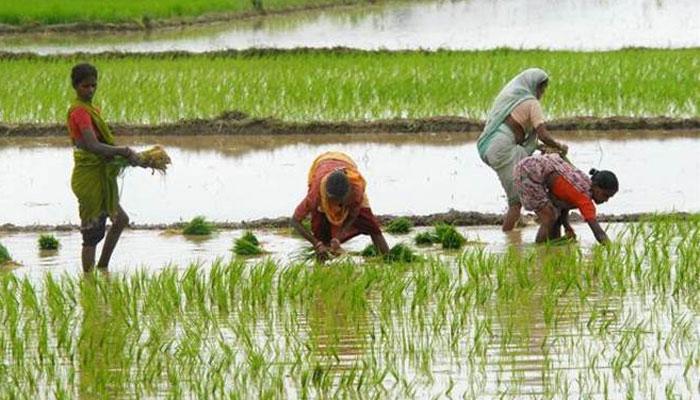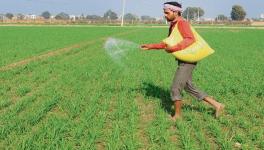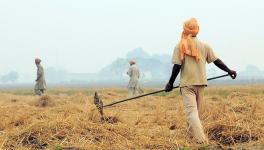Haryana Govt. Wants Farmers to Leave Paddy Cultivation to Arrest Depleting Groundwater Table

Representational Image. Image Courtesy: Zee News
As an attempt to arrest the depleting groundwater table, Haryana government has launched a new scheme for the replacement of water- intensive non Basmati Paddy by Maize and other crops in seven dark zone blocks. As per the Department of Agriculture and Farmers Welfare, about one meter of water table is depleting per year due to continuous Paddy growing in the State.
Farmers and organisations in the state are a bit sceptical about the project since it has no clarities about the procurement. The farmers have asked the government to introduce a proper mechanism to procure alternative crops ensuring Minimum Support Price (MSP). So far, the government has declared an incentive of Rs 2,000 per acre (ie 0.4 hectares) to the farmers who are shifting from paddy to maize and pulses, mainly. The MSP for paddy is Rs 1,750 per quintal whereas the MSP for maize is fixed at Rs 1,700 per quintal.
“The government has not specified about the procurement methods,” Inderjit Singh of All India Kisan Sabha told NewsClick.
The scheme that envisages diversification of 50,000 hectares of the non-basmati area into maize and other crops, is being introduced in seven blocks of various districts which have already been identified. Karnal, Kaithal, Jind, Kurukshetra, Ambala, Yamunanagar and Sonipat are the districts which are being identified for the pilot project. Paddy is currently cultivated on around 1,53,357 hectares in these blocks. As per the government’s data, 45 percent of this area consists of non-basmati paddy which accounts for around 87,900 hectares of land. Under the new scheme, it is expected that about 50,000 hectares would be covered under the proposed scheme of diversification.
“Our village gets waterlogged in the rainy season, which is good for paddy, but not for maize or pulses. In fact, a good rain destroys maize,” said Sultan Singh, a 43-year-old farmer from Bir Amin village who has been cultivating paddy for the last three decades. “Moreover, maize attracts Neelgai (Asian Antelope), which often destroys the crops here.”
However, the average fall in groundwater level in the seven pilot districts is over 12 m. According to the Indian Council of Agricultural Research, nearly 85 percent of the state’s cultivated area is irrigated by groundwater or surface water.
As per the government’s data, maize required only 4 Irrigation- even less if there are sufficient rains, whereas rice requires 40-45 Irrigation in general. To produce 1 kg of rice, it requires 2000-5000 liter of water- depending upon the soil types and time of sowing. “We can save at least 30 lakh literof water per hectare from the nursery raising and puddling per hectare of rice crop. Rice requires 190-220 cm/Hectare(1 cm = 1 lakh litres of water) whereas maize requires 60-80cm/Hectare and we can save 142 cm/Hectare water. Thus a lot of water saving with maize cultivation can be a solution for the above problems,” reads the document.
Read More: Amid Deep Agrarian Crisis, Marginal Increase in MSP of Kharif Crops by Govt
At the same time, Haryana government which claims to be taking steps to protect the depleting groundwater table, has come up with another scheme promoting Cotton cultivation in the state. But, a research done by the Water Footprint Network reveals that producing one kilogram of cotton in India consumes around 22,500 liters of water on an average.
The water technologists at the Indian Agricultural Research Institute in New Delhi, however, say no more than 600 liters of water is needed per one kilogram of paddy if proper water management techniques are followed for the cultivation.
Therefore, it is clear that, “optimising irrigation water use should be our aim,” said BR Sharma who coordinates an all-India research project on water management.
Read More: Zero Budget Farming Is as Mad an Idea as Demonetisation: Raju Shetti
Get the latest reports & analysis with people's perspective on Protests, movements & deep analytical videos, discussions of the current affairs in your Telegram app. Subscribe to NewsClick's Telegram channel & get Real-Time updates on stories, as they get published on our website.
























